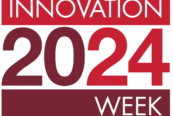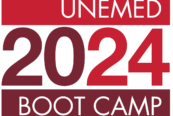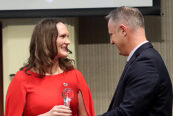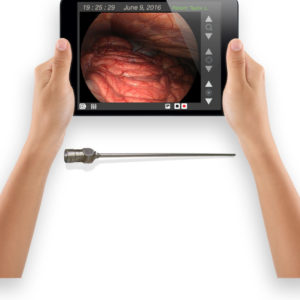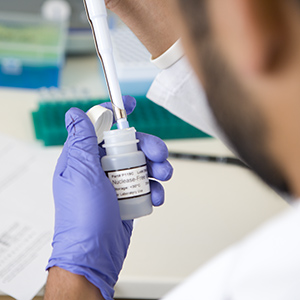by Brooke Dillon, UNeMed | June 14, 2016
I had a wonderful experience as a legal intern at UNeMed. I aspire to be a patent attorney, and began working at UNeMed in the summer of my first year in law school. For the past two years, I have been able to work with great people to take inventions from an idea’s beginning in a researcher’s laboratory to a final product sold in the marketplace. The internship taught me to ask good questions, to embrace learning new things, and to create systems.
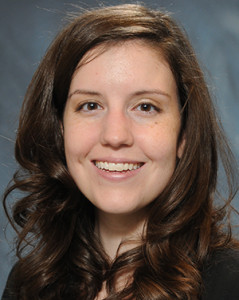 An invention begins with an idea. For example, say a researcher is studying the effects of second-hand smoke on the lungs of ferrets. The researcher needs a certain material to conduct the study. As a legal intern, I helped to draft and negotiate a Material Transfer Agreement, the contract that allows a researcher to use another institution’s materials.
An invention begins with an idea. For example, say a researcher is studying the effects of second-hand smoke on the lungs of ferrets. The researcher needs a certain material to conduct the study. As a legal intern, I helped to draft and negotiate a Material Transfer Agreement, the contract that allows a researcher to use another institution’s materials.
After the researcher conducts the experiment, the researcher discovers something. In this hypothetical scenario, the discovery is a biomarker that predicts lung cancer in young adults. The researcher would then send UNeMed his idea to determine if the invention could receive a patent.
As an intern, I searched for prior art references, including other patents or publications that taught our researcher’s idea. If I found prior art references, it would be more difficult to get a patent on the idea. If a researcher is able to get a patent on the invention, then we would work at marketing and licensing the device to companies. I worked on a variety of interesting inventions, ranging from surgical tools to biomedical prosthetics to air conditioning systems. Along the way, I learned to:
- Ask questions: Sometimes inventors send us their ideas with little explanation. Having a discussion with an inventor can change or expand the whole invention. Many people believe patents are for large, complicated inventions, such as time machines or cold fusion. However, patents often cover small improvements on existing items. In order to ascertain what the small improvement is, you have to be able to ask insightful questions. One of the attorneys I worked with told me the best question to ask an inventor is, “What else could it be?”
- Embrace learning new things: As an intern, I often received projects that I had never worked on before. Sometimes it was a familiar patent search, but the technology was something I had not heard of. Or the project was a contract I had not drafted yet. I would sit at my desk and think, “no one taught me this in law school.” I learned over time that it was not the information I already knew but what I was willing to learn that made the biggest difference in a project’s outcome. Working in patent law means you get to work with new ideas every day. As I embraced learning, I found that I enjoyed my work immensely.
- Create systems: Organization and repetition can make a tremendous difference in how quickly a task is completed. I eventually realized that you do not have to reinvent the wheel for each new assignment. Drafting most contracts comes down to four questions: 1. Who are the parties? 2. What are they negotiating? 3. What is most important to our side? 4. How do I communicate that in the contract? Most inventions break down to a series of elements, and searching those elements requires thinking of all the words that could be used to describe them. As I learned to find the common thread that ran through my various projects, I could create a general system that I would repeat and tweak to new projects.
Thank you to everyone at UNeMed who has helped me! I learned so much here. I do not think that would be possible without your patience, willingness to answer my questions, and your flexibility with my schedule. This has been a wonderful experience. UNeMed is a great place to work and I recommend it for other interns!
About: Brooke Dillon is the former legal intern for UNeMed. She holds law degree and an MBA from Creighton University and recently passed the U.S. Patent Bar in March 2015. Brooke intends to continue her education in the fall of 2016 at the University of Nebraska at Omaha where she will pursue a bachelor’s degree in electrical engineering and an advanced biology degree.

